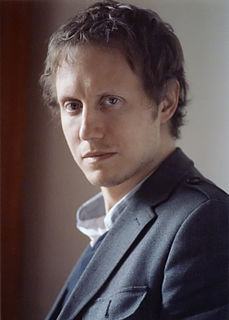A Quote by John D'Agata
People like to say that Plutarch's is a really "personal" voice, but in truth Plutarch tells us very little about his life. His voice is personable but never personal. It feels intimate because he's addressing the world as we experience it, at this level, a human level, rather than way up here where very few of us live.
Related Quotes
But what I would like to say is that the spiritual life is a life in which you gradually learn to listen to a voice that says something else, that says, "You are the beloved and on you my favour rests."... I want you to hear that voice. It is not a very loud voice because it is an intimate voice. It comes from a very deep place. It is soft and gentle. I want you to gradually hear that voice. We both have to hear that voice and to claim for ourselves that that voice speaks the truth, our truth. It tells us who we are.
Sometimes all we need is only listening to an inner voice and remaining human in a very personal way. But even if it is a personal way, it's still a very valid way - maybe the most valid way. It doesn't have to be a collective experience or someone telling you what to do. The most sacred human experience can be a very personal one.
Leonard [Nimoy] was such a teacher for me. He was one of the most fully realized human beings I have ever known on every level - in his personal life with his personal relationships and his love for his wife and his evolution with his family. Then as an artist, as an actor, as a writer, as a poet, and as a photographer. He never stopped.
The thing that all of us should strive for is to so live, keeping the commandments of the Lord, that He can answer our prayers. If we will live worthy, then the Lord will guide us - by a personal appearance, or by His actual voice, or by His voice coming into our mind, or by impressions upon our heart and our soul. And oh, how grateful we ought to be if the Lord sends us a dream in which is revealed to us the beauties of the eternity or a warning and direction for our special comfort. Yes, if we so live, the Lord will guide us for our salvation and for our benefit.
Critics who perceive the first level of Mann's irony recognize that the second voice is giving us reasons to be dubious about various aspects of Aschenbach's life and work. But many of them don't appreciate the second level of irony, the one exemplified in setting this narrative voice alongside the more sympathetic one, and inviting us to choose.
Zhuangzi is especially insightful about the human pretension to know. The Zhuangzi tells a story about a frog who lives in caved-in well. Because he is the lord of this little world of his, king of the pollywogs, he is very proud of himself. But he doesn't know how small his world is until a turtle comes and tells him about the vastness of the sea. We human beings are like the frog, not realizing how little our worlds are.




































